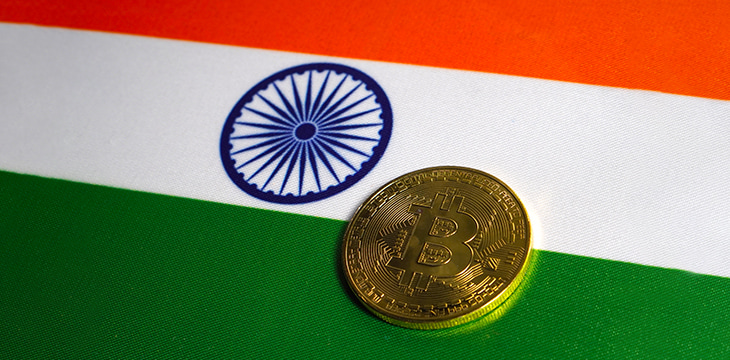|
Getting your Trinity Audio player ready...
|
India made headlines earlier this month when it announced a new tax regime on digital currencies. This week, a Deputy Governor at the Reserve Bank of India (RBI) likened digital currencies to Ponzi schemes and said banning them was the best course of action for the country. T. Rabi Sankar said that digital currencies are not amenable to definition as currency, asset, or commodity; they have no underlying cash flows, they have no intrinsic value, they are akin to Ponzi schemes and may actually be worse. Yikes!
Confusing signals out of India
When the recent budget announcement outlined new taxes, some interpreted it as India finally embracing digital currencies or at least accepting them.
Deputy Governor Sankar’s comments stand in stark contrast to this view. He clearly does not see digital currencies in a positive light. He dismissed the idea that India should regulate digital currencies and called for an outright ban.
Going further than dismissing the notion of regulation as worth pursuing, Sankar said it was not possible to regulate digital currencies because they can not be properly defined.
“Cryptocurrencies are not currencies, or financial assets or real assets, or even digital assets. Therefore [they] cannot be regulated by any financial sector regulator,” he said.
These are strong words from someone in a position of power in India, and they will surely have some impact on how regulators view digital currencies and other assets. Sankar’s comments echo those of RBI Governor Shaktikanta Das, meaning the dismal view of digital currencies goes all the way to the top.
However, it should be noted that neither the central bank governor nor the deputy governor can craft regulations on their own. They are simply expressing opinions, and the new tax rules announced earlier still stand for now.
Even the deputy governor of RBI can get things wrong
However, in his scathing assessment of digital currencies, Sankar got a couple of things wrong. The main errors can be found in this quote:
“The fact that they are anonymous, decentralized systems that operate purely virtually makes cryptocurrencies particularly attractive to illegal, illegitimate transactions.”
While he’s right that criminals flock to the industry and his concerns are not unfounded, this comment shows that the deputy governor does not fully grasp how Bitcoin works. He is repeating the false narratives and myths promoted by many in the digital currency industry, particularly high-profile personalities associated with BTC.
In reality, Bitcoin is not anonymous. While it allows privacy, anonymity is a different thing, and Bitcoin was not designed to be anonymous. Neither is it decentralized in the popular understanding of the term.
Here we have the lies and misunderstandings promoted by Blockstream and other powerful actors in BTC being spoken as if they are facts by the Deputy Governor of a powerful central bank. It shows just how deep the deception and misunderstanding go.
The myths and lies were always going to backfire
When bad actors take a system designed to keep records and facilitate small, casual transactions (micropayments) and which was designed to operate within the law and attempt to turn it into something else, responses like those of Sankar’s are to be expected. If Bitcoin ends up being banned in India or anywhere else, it will be the fault of nobody else but the people who have mischaracterized it for so long.
It’s crucially important that people begin to understand what Bitcoin really is and how it works. While the majority of digital currencies are, in fact, worse than Ponzi schemes, it’s important that people in powerful positions who can influence policymakers don’t throw the baby out with the bathwater. It’s also crucial that they begin to understand how Bitcoin can help them deal with the problems they are concerned about. While Sankar’s concerns are correct, some of his assumptions are totally wrong. The fault lies squarely with those who have painted Bitcoin as something it is not for too long.
Selling Bitcoin first as an anonymous cash system that can be used to circumvent the law and then as an investment was always going to backfire. It is neither. It is a peer-to-peer electronic cash system designed to work within existing financial regulations and dramatically improve the world.
Watch: CoinGeek New York panel, Government & Public Sector Applications on Blockchain

 02-21-2026
02-21-2026 




